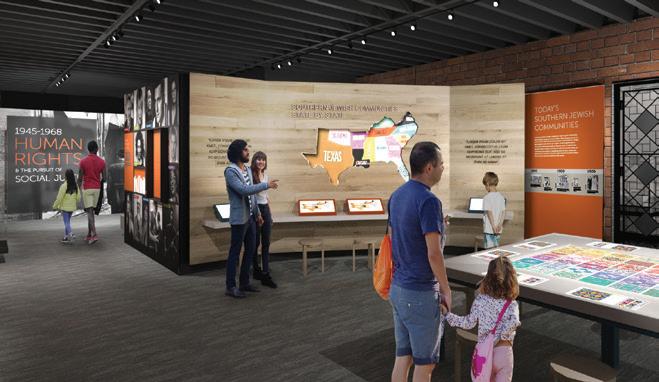
2 minute read
HEALTH
Is Loneliness Killing Us?
WHAT'S NEW! HEALTHCARE SEGMENT
Advertisement

In tradition, toasting l’chaim brings people together in every Jewish life cycle. In that spirit, L’Chaim magazine is excited to introduce a new healthcare column, aimed at improving your quality of life through education and awareness.
San Diego is a high-tech hub for healthcare/health science activities and resources. L’Chaim magazine will leverage and share the vast public information by aggregating them into relevant and understandable segment features. These articles will be presented by experts in their fields along with resources to contact. We will continue to bring the Jewish community together through shared medical discoveries to help you be more informed about health issues that matter to you. We hope that you will enjoy the new upcoming segment and we look forward to being a resource in your life.
L’Chaim, to your health!
Disclaimer & Disclosure The contents of this column are for informational and educational purposes only. Nothing found in the segment is intended to be a substitute for professional psychological, psychiatric or medical advice, diagnosis, or treatment.
LONELINESS IS FINALLY RECEIVING ITS DUE ATTENTION
Researchers around the world are reporting its impact on health utilization, acceleration of the chronic disease process and mortality.
The late John Cacioppo, a leading psychologist on the subject of loneliness said, “is not synonymous with being alone, nor does being with others guarantee protection from feelings of loneliness. It’s the feeling that wreaks havoc on the body and brain.”
Loneliness is particularly dangerous for the senior population as it hastens decline in health and life expectancy. A study published by AARP in 2010 found more than one-third of adults 45 and over reported being chronically lonely. Whereas, a decade earlier the same survey reported only one in five adults were chronically lonely.
Loneliness impacts young adults as well. Daniel Russell, a professor of human development and family studies at Iowa State University co-created the UCLA Loneliness Scale to measure the social isolation and loneliness an individual is experiencing. His research found high school and college students experience loneliness more frequently than any other demographic.
Research has found that some social media – Facebook, Snapchat, and other apps to keep connected with friends and family bring happiness to your life. However, students who spend more than two hours every day using social media mainly as a substitute for real connection, are at risk for developing worsening feeling of loneliness. Humans are social animals. We need to be attached to others and the internet is not a substitute for real live face to face interactions and communications.
Build your social connections now. The only way to combat loneliness is to be around others, interacting and nurturing friendships. Diane Cempellin is an accomplished healthcare executive with a passion for transforming the health care delivery system. She has worked in both start-ups and multinational healthcare corporations. Her background includes working for payors, providers, health plan and the medical devices industry. She has expertise in design and implementation of clinical transformation projects, clinical innovation and care redesign to achieve care delivery optimization. She holds a Doctorate in Nursing Practice from Simmons College in Boston, Ma.










